A proposed federal law is putting the spotlight on an overlooked risk inside many of Hawaii’s hotels and vacation rentals. The Stay Safe Act, introduced in Congress after the carbon monoxide poisoning death of a California teen, would require lodging operators nationwide to install carbon monoxide detectors. That includes Hawaii hotels and short-term rentals, many of which currently do not include the devices.
This simple mandate could bring a big change to how lodging is regulated in Hawaii, particularly for short-term rentals. And for travelers, it raises new questions about what’s actually protecting them when they check in.
Many Hawaii rentals lack carbon monoxide detectors.
Carbon monoxide can kill within minutes. Most states require detectors in homes, but those rules don’t always apply to vacation rentals, and they vary even more when it comes to hotels. In Hawaii, there is no statewide law requiring carbon monoxide detectors in any lodging units. Requirements are typically tied to local building codes, meaning compliance is inconsistent and rarely enforced.
This leaves a major gap, especially in Hawaii’s short-term rental market. Many STRs operate in older buildings, homes, and duplexes—all settings where gas-burning appliances are sometimes found. Those include propane water heaters, gas stoves, or enclosed carports, all of which increase the risk of carbon monoxide exposure.
Hotels are safer, but not guaranteed.
Larger Hawaii hotels are more likely to follow brand-wide safety policies and building codes that include carbon monoxide detection. Some chains already install detectors in rooms near mechanical systems, laundry rooms, or enclosed garages. But that doesn’t mean every guest room has one, or that visitors can assume the device is present.
Even in resorts, standards vary depending on when the building was constructed or last renovated. There is no uniform inspection requirement that ensures detectors are maintained or even working.
Short-term rentals would be hit hardest.
The bill could have its greatest impact on the thousands of short-term rentals across Hawaii. These units often receive limited oversight and are hosted by individuals with varying levels of compliance.
Unlike hotels, many STRs are not part of large management companies with dedicated safety teams. That means any new federal safety rule would fall directly on owners and hosts, many of whom already face rising costs and shrinking margins. For them, the Stay Safe Act could require new equipment, installation time, and ongoing maintenance—yet another layer of regulation within an already complex system.
Travelers may end up paying for it.
The detectors are inexpensive, typically costing less than $50 per unit. But the real cost comes in enforcement and compliance. Owners may need to upgrade wiring, provide documentation, or hire professionals to confirm installations. Platforms like Airbnb may need to require proof of compliance, and insurance companies might follow.
You can also purchase a portable carbon monoxide unit for less than $30. It plugs into a wall outlet and is perfect for travel.
Where the bill stands in Congress.
As of June 2025, the Stay Safe Act has been formally introduced in the U.S. House of Representatives. Rep. Angie Craig of Minnesota filed the bill on June 5 and referred it to two committees: Science, Space, and Technology and Energy and Commerce. It would require carbon monoxide detectors in all public accommodations, including hotels, motels, and short-term rentals nationwide.
A related bill, H.R. 3918, was introduced on June 11. That version specifically targets short-term rentals and includes a requirement for both carbon monoxide and smoke detectors. It is currently being reviewed in the Energy and Commerce Committee.
Neither bill has advanced further yet, no hearings have been scheduled, and no votes have been cast. But with bipartisan support and growing public interest, the issue may gain traction, especially as summer travel pushes safety concerns to the forefront.
Enforcement may rely on booking platforms.
If the Stay Safe Act becomes law, its enforcement mechanisms will matter as much as the rule itself. The bill doesn’t yet say who will be responsible for monitoring compliance. State and county agencies in Hawaii are already stretched thin enforcing existing STR regulations.
It’s possible that platforms like Airbnb, Vrbo, and Booking.com will bear the responsibility. These companies already verify tax compliance and location restrictions in some places. They could be asked—or required—to verify that hosts have installed detectors before allowing new listings.
Hotels, on the other hand, may be subject to self-certification or annual inspections, depending on how the rules are written. However, a new federal mandate could create even more administrative complexity for Hawaii, where regulation is already fragmented across multiple islands and counties.
Visitors can take steps now.
Regardless of whether the bill passes, travelers don’t have to wait to protect themselves. When booking a short-term rental or independent hotel, ask the host or property manager whether a carbon monoxide detector is installed. Don’t assume it’s there just because smoke alarms are.
Some travelers bring a portable detector with them for extra peace of mind. Small battery-operated devices are available for under $30 and can alert you within minutes if carbon monoxide is present in the room. They’ve long been common among RV users and campers, and are increasingly being recommended for those staying in less regulated lodging.
Hawaii’s uneven lodging landscape makes this urgent.
Hawaii has one of the country’s most diverse and fragmented lodging ecosystems. That diversity has charm, but it also comes with risk.
As the vacation rental industry has expanded, so has the gap in related standards. Unlike hotels, there’s no governing body ensuring minimum protections. The Stay Safe Act aims to address that on a national level.
Hawaii is especially vulnerable because so many visitors, perhaps 30%, opt for non-traditional (hotel) lodging.
A sign of what’s coming next.
If passed, the Stay Safe Act won’t be the last time travelers are asked to pay attention to what’s inside their room. This bill is part of a broader shift in travel, especially in Hawaii, where guests are asked to take more personal responsibility for safety, legality, and environmental impact.
From reef-safe sunscreen requirements to hiking restrictions and STR zoning crackdowns, the message is clear: don’t assume it’s being handled for you. Carbon monoxide detection is the latest reminder that not all protections are in place by default.
Travelers are paying attention.
Several readers have already reached out after hearing about the bill. One wrote to tell us she was surprised to learn her last Kauai rental had no visible detectors of any kind. Another said he plans to pack a portable CO alarm from now on—something he never thought about until now.
Their reactions reflect a growing awareness that Hawaii lodging is not one-size-fits-all. As more travelers question what’s missing from the places they stay, laws like this one may not just be welcomed—they may be overdue.
Get Breaking Hawaii Travel News

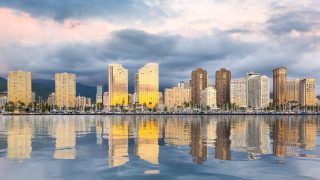
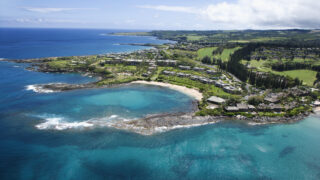
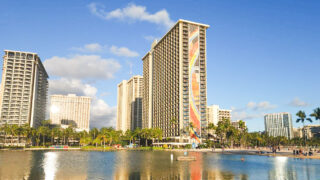
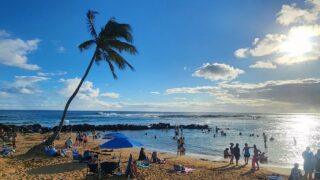

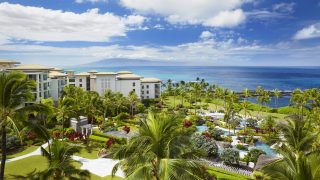
One California teen died of carbon monoxide poisoning in Costa Rica, and they want to pass a law requiring CO detectors. Over 80,000 died of drug-related causes in the US in 2024, and we seem unable to stop that, and many states are making drug use legal.
A few CO detectors are cheap insurance, easily under $100. This is just one reason more regulated hotels, motels and inns are typically safer, they all have routine inspections, and a large corporation has a lot to lose, thus these are easily cheap insurance. As a career firefighter I can tell you they do work, we’ve had many calls where the CO detector was the only thing that revealed a problem early.
A carbon monoxide detector is required to put your short term rental on airbnb.
What a scare tactic – if you do not have gas appliance – which many places (condos) do not have here -as there is no gas available and no furnaces -we only have propane which would require a propane tank outside – with a line going thru the siding into the kitchen- -no way) no need for a carbon monoxide detector – this article is an over reach regarding str’s and carbon monoxide detectors – maybe hotels would need them ? Maybe they run on propane? I don’t know – but single family homes may have a gas stove which uses propane? condos don’t use propane other than their pool heaters and no bbqs in the condo
re: United Catering Change at SFO
On 17 June 25 we flew SFO-HNL on a United 777 in economy class with seats in the tail of the aircraft. As we were almost the last customers to be served with food and drink, we were pleasantly surprised to see both carts fully stocked when they arrived at our next-to-the-last row of seats. No shortages of anything, plus the Tuscan Caprese Burgers we purchased were both hot and tasty. When questioned regarding the reported catering chaos resulting from the recent vendor switch, he replied that things were pretty rough at first, but things are now back to normal.
Electric appliances can not generate carbon monoxide. No combustion, no carbon monoxide.
Mandating CO detectors in most condos and hotel rooms would be like having snorkelers carry fire extinguishers.
IMO the only way to stay safe in Hawaii is to pack a audio recording device, video recording device and retain or travel with a good lawyer. I guess your other choice is to not go at all. Hawaii by making the tourist accountable, responsible, and the state not being accountable is IMO just getting out of hand.
How much carbon monoxide is generated from all the traffic exhaust fumes coming from congested streets etc. Blowing in hotel entrances setting off carbon monoxide detectors. Does this mean that cars around Waikiki will become electric only? Don’t surprise me a bit how Hawaii states guest safety is the tourists responsibility. Just another lithium battery device travelers need to pack on an airplane. Hawaii IMO is getting more of a hassle and this may be on purpose.
Hard to believe that this has become a priority for our Congress.
As a responsible owner we of course will comply with any regulations despite the fact that our condo has no heating or air conditioning and trade winds blowing through 3 Lanai windows.
This is another potential litigious pitfall for all owners. We have quit providing guests with Snorkeling gear because of recent law suits.
Some people cannot assume any responsibility for their own safety.
Yes, you can drown in the ocean!
Patrick M
Last year I purchased a monoxide alarm, Inexpensive small and easy to pack. If electricity is off for some reason, it has a battery backup. Now I take it with me whenever I’m out of town.
Your article about carbon monoxide detectors doesn’t take in the fact that many accommodations here in Hawaii don’t have or need air conditioning or heating. Consequently the windows are open letting air flow through freely.
Could it be that hotel chains in Hawaii, along with the Governor, Mayors, and other politicians pushing to rid some of the STR’s on the islands, be behind some of this Legislation coming out of Washington, D.C.? Maybe a some checking with the Legislator(s) who have introduced the Legislation could reveal some info!
Hotels are usually powered by electricity. Condos/vacation homes may have propane or natural gas, but it is rare.
Accordingly, carbon monoxide detectors are unnecessary in most Hawaiian dwellings and should only be required in units with gas.
I managed 70 properties in West Maui, all of which were 100% electric. The alarms are cheap enough to install for peace of mind but to go to the point of passing a law and more hoops for owners and managers to jump through is just that. Know your demographics please.
STRs with louvre windows that never close completely or my home where I can’t really close the windows because I need to hold the screens in place don’t need them either. The gas water heater at the STR is outside.
Absolutely a great requirement! Very few devices sold today have smoke only detection. Most all sold now have carbon monoxide detection built in with a sealed battery compartment, preventing, a ten year clock built in which cannot be stopped, even if the batteries could be removed, preventing them from being used past their design life. I have had them in my property since I my tenth day of ownership. I do not need the CO detection for my unit is on the 3rd floor of a building. (CO is heavier than air & will escape to lower levels like water.) However, I have observed other STR operators go very cheap, claiming it is an expense they will not pay, disregarding fire codes & public safety laws. Their Only interest is the $$$!! The safety of their guests is not a serious concern while they have money. I cringe to think what it has done to public perception & the spirit of the islands to have regard for every citizen & island visitor’s well being. Great requirement. I have no problem!!